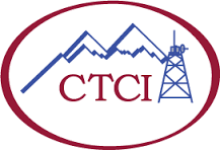Oregon Passes New Universal Service Fee Law to Support Expanded Rural Broadband Development Fund
Over the summer, Oregon took a second swing at revising its state Universal Service Fund program by passing SB 1603, a bill which will create a larger rural broadband development fund by including retail wireless and VoIP service (in addition to traditional telephone service) in the fees it collects to bring basic connectivity services to unconnected parts of the state. The new law lowers the current tax rate on telecommunications service provider's gross revenue (from 8.5% to 6%) but dramatically broadens the collection base, which will bring in needed dollars to expand broadband access to state residents without it in coming years. The move comes on the heels of the state’s move to establish a Broadband Office in 2018 to “to promote access to broadband services for all Oregonians in order to improve the economy and quality of life.”
Nuts and Bolts
SB 1603, which passed the state legislature on June 26 and was signed into law on July 7, directs the Oregon Business Development Department (OBDD) to transfer up to $5 million of the funds collected each year to a broadband fund for rural development projects, administered by the OBDD. While the amount that will be collected remains unknown at the moment, it will no doubt represent a significant boost: the current mechanism for funding rural information infrastructure projects — the Rural Broadband Capacity Pilot Program — received 25 applications for almost $5 million in requested funding, but was only able to grant $500,000, or 10%. SB 1603 caps the money to be collected by the Oregon Universal Service Fund at $28 million annually.
As a result of SB1603, Oregonians can expect the average cell phone bill would go up by about $4 a year, and those with landline telephone service will see an annual decrease of $12 a year. Some VoIP providers had contributed willingly prior to the bill — that voluntary opt-in is removed.










